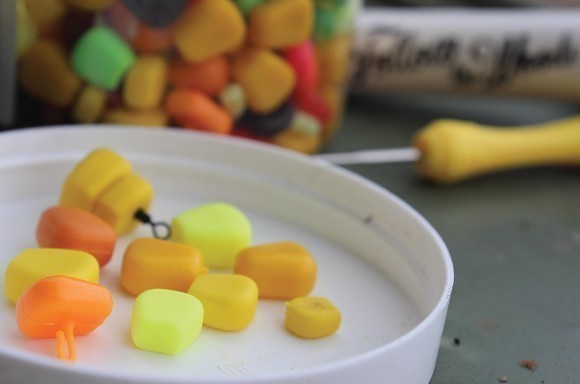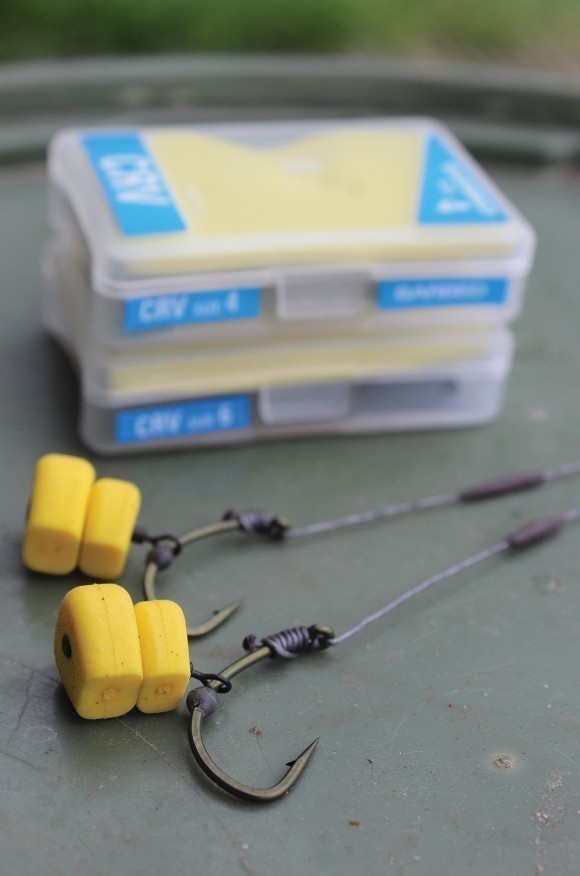
How to get the most out of maize and corn
Mat Woods looks at his favourite set-ups when fishing with maize and sweetcorn, two of the deadliest carp baits of all time
Without the colour yellow, my fishing would be f*cked! Seriously, I reckon that if you were to take maize, sweetcorn, yellow pop-ups and plastic corn away from me I’d be totally lost. To my mind, these baits are absolute bankers – baits that work all year round no matter the venue.
For most, the addition of yellow goes about as far as tipping a hookbait, but I’m a heavy user on the particle front and turn to the delicious yellow delights almost every time I go fishing!
Presenting a hookbait when using corn and maize, however, is not quite as simple as it was when you side hooked a few grains under a float. In fact, most set-ups I see for particle fishing are a little too dainty, with everything scaled down a little too far to accommodate the smaller hookbaits. Me? I’ve seen enough to know that not everything needs to be done by the book.
Frank Warwick used to fish happily with a size 6 Longshank Incizor and two grains of plastic corn. Ian Russell’s the same and guys like Mark Bartlett are casting out single grains of plastic corn on size 4 hooks, at times. And why not? For me, it’s about getting as clean a hook hold as possible when you’re using particles – it’s not about looking pretty.
It’s different to when you’re using boilies, where often you can get away with anything as the fish search out the food source. With particles, they feed in a different way, usually grazing over the area like cows and making lots of small visits rather than one long munch up. If you’ve ever fished any gin clear venues you get to watch this take place. Carp come in, have a few mouthfuls, then off they go. Lord knows where they go, but they do. It’s often why, when you’re fishing big baited areas out in a gravel or sand pit you see the carp showing everywhere around the area, but rarely right on the spot. They’re probably adjusting their swim bladders or just getting excited, but when you watch them in the edge, there’s loads of times they just mosey off into the depths only to return a while later.
For this reason, I think a short rig is so important. They aren’t moving their heads from bait to bait like they do over boilies, so you need that shorter rig and heavier lead situation that gives them real problems. They don’t like it, trust me! I normally go for my usual German Rig and I have two hookbait options that serve me well time and time again. In fact, you will very rarely see me without at least one of these on my rods, if not on all three!
The first uses some advice given way back in the day by Sir Terry Hearn himself. He wrote about always having a smaller grain of maize nearest to the hook when using multiple baits on the Hair, as it gave a cleaner set-up. By doing this you basically leave the whole of the hook bend and point clear, so there’s no way the hookbait can get in the way during that snapshot moment when a carp picks up the rig. I usually do this using two plastic corn hookbaits that have been festering in Hinders’ Betalin. I don’t care what anyone says, that stuff makes a monumental difference and is arguably the greatest hookbait additive of all time. But I digress.
By using one big, one small, you get an almost conical shape. Let’s be honest, the buoyancy isn’t ever going to be enough to make it truly ‘float’ but that’s not the idea. I use this on either a size 6 or size 4 Avid CRV depending on how I would like the buoyancy. For PVA bag fishing I use the size 6, when fishing over bait I use the size 4. Probably makes no difference, but it makes me feel a lot better. The hook always sits flat on the lakebed and the plastic sort of wobbles on the hook swivel. It looks ace!
That’s my favourite hookbait set-up at the moment, as it can be left in position for long periods and it’s buoyancy can never change. But it doesn’t cover all the bases.
The second set-up I like is the one I switch to when fishing over weedier areas, where I need a pop-up hookbait. Initially I would just use a yellow pop-up and bung it out there on a simple reset rig, but I found many occasions where the close resemblance to a grain of corn or maize just simply wasn’t enough.
I read somebody recently advising to use two grains of a certain brand’s corn on a Hinged Stiff Rig for this type of situation. Well sorry, fella, nobody’s plastic corn is buoyant enough to support that! Especially not the stuff they recommended. The only way you can balance it out truly as a pop-up is using half an Avid Carp HighLite, the most buoyant pieces of foam on earth! Seriously, they’re scared of water, it’s daft, and as they take on flavours and sweeteners well, the perfect option for propping up something that otherwise does not want to float.
Half a slice of yellow HighLite underneath a real grain of maize is a sexy hookbait offering that works well on just about any pop-up rig, including Choddies and the like. I know Ian Russell uses something similar with an Avid Corn Stop on top, another great option if you want to leave it in the pond a while.
Many of you will remember when Danny Fairbrass and Damian Clarke won the British Carp Angling Championships using a mixture of foam and maize on the hook. It was a real catalyst for them as anglers and as the brand Korda. Every man and his dog was spodding ‘munga’ like their lives depended on it and in some way, I prefer lakes where this is going on rather than people feeding seagulls with a throwing stick.











